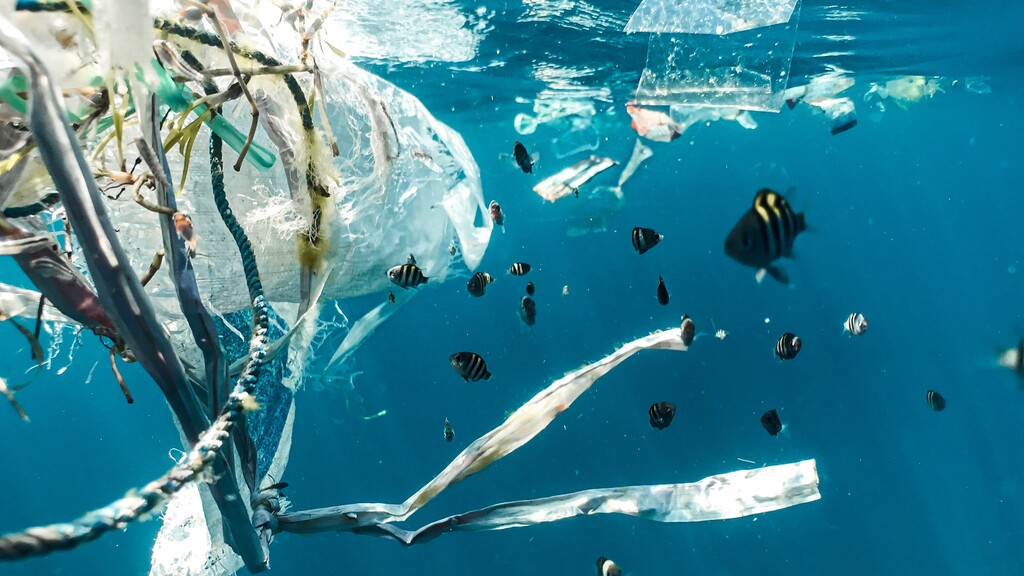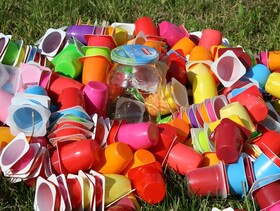


Above all through food, we pick up plastic chemical additives. Basically, you should therefore avoid all foods that have been in contact with plastic for a long time. These include, in particular, foods that are fat, moist or acidic, since the likelihood here is that chemical additives have dissolved out of the plastic packaging.
Manufacturers may note that the chemicals in plastic are present in only a very small proportion. They refer to the low-dose approach of toxicology: In low dose, a poison is harmless. But some chemical additives in plastic in the human organism act as messengers and hormones. Sometimes a few molecules are enough to influence the human metabolism.
Basically, healthy plastic does not exist.
Most of us use different plastic products every day: In the morning under the shower the shower gel from the plastic container. The plastic shower curtain drips off the water and we breathe in the humid vapors. Then brush your teeth with a plastic toothbrush with toothpaste, which was in a plastic tube for months.
Of course, the coffee comes from the new coffee machine, which presses the coffee powder through a plastic pad with hot steam and water. A cheese bread with cheese, which was neatly separated with plastic from the other cheese slices. Quickly scratch out the yogurt cup, of course, that is also made of plastic.
Off to the subway, on the way, a freshly brewed cappuccino is quickly bought in a paper cup, which is coated with plastic inside, and oh, and a bottle of water later for the sport, of course, from a plastic bottle, which is not so difficult , and so it goes on for the whole day ...
Studies indicate that plastic substances accumulate in the human body (Federal Ministry of Health, Vienna, 2010). Even if the chemical substances in plastic are below the legally permitted minimum limit, the permanent contact with plastic can lead us to take these substances far beyond the permitted minimum values.
Checklist for shopping
We know that it's hard to buy plasticfree, but with a little imagination and curiosity. Here are a few simple tips on how and where to avoid plastic and strengthen your health:
Plastic is everywhere in our everyday lives, sometimes we can not avoid it, because who likes to do without the computer or the practical smartphone? But a few basic rules in dealing with plastic reduce the risk of taking harmful substances:
Yes, the chemical additives in plastic are invisible, we often do not taste or smell them - except after a day in the sun. But also radioactivity is not visible and can still be dangerous.
Make a plastic spring cleaning. Walk room by room through your home or apartment and discover where plastic is waiting for you everywhere. Do you need this plastic? Can you replace it or at least stow it somewhere else, so that you no longer get in contact with it every day? We absorb many chemical substances via the breath and the skin!
By the way, a plastic spring cleaning can be done all year round.
If you want to know if BPA or other contaminants are present in products, contact the manufacturing company directly for clarification. Consumer requests to companies have to be processed within 45 days according to the right of access, which was introduced with the EU regulation in 2007, and the consumer must be informed about dangerous substances in the products.
We have made a sample letter, you are welcome to use. Naturefund offers you to publish answers from manufacturers and companies on our website if they agree with them, especially if a product or packaging contains hazardous substances.
This increases transparency, companies have fewer questions to answer, and more people use this information to decide whether to buy certain products or not.
Naturefund makes no claim to completeness and reserves the right to change or extend certain information. Above all, we want to inform about the subject of plastic and point out alternatives.